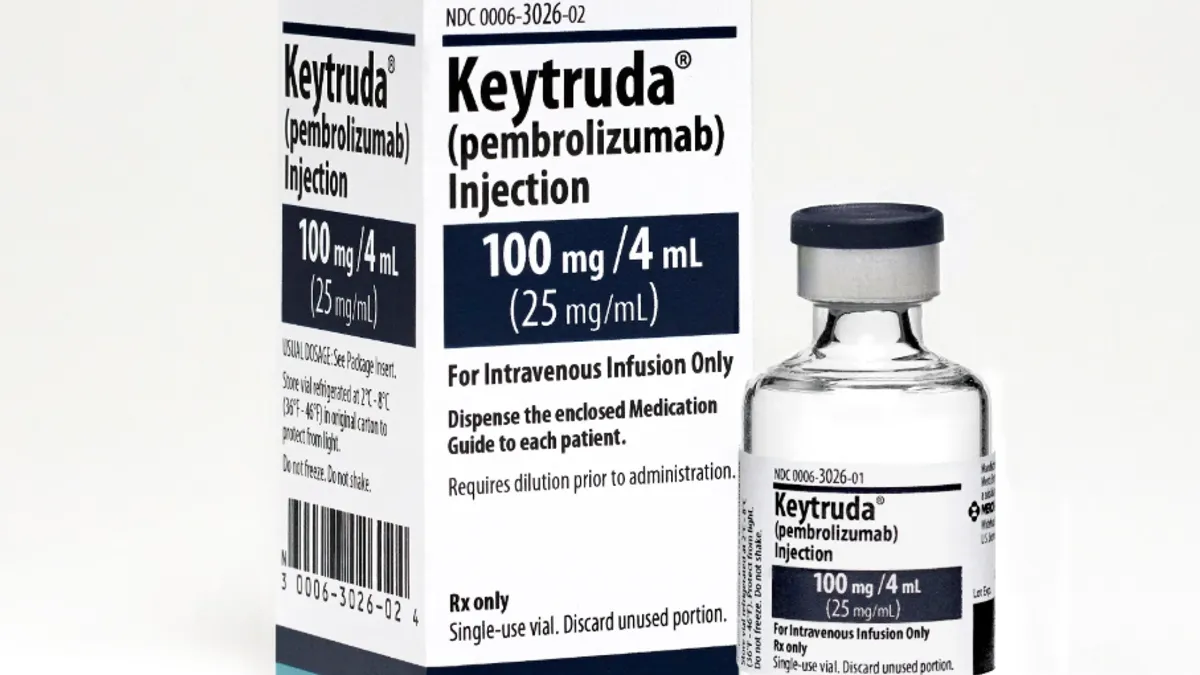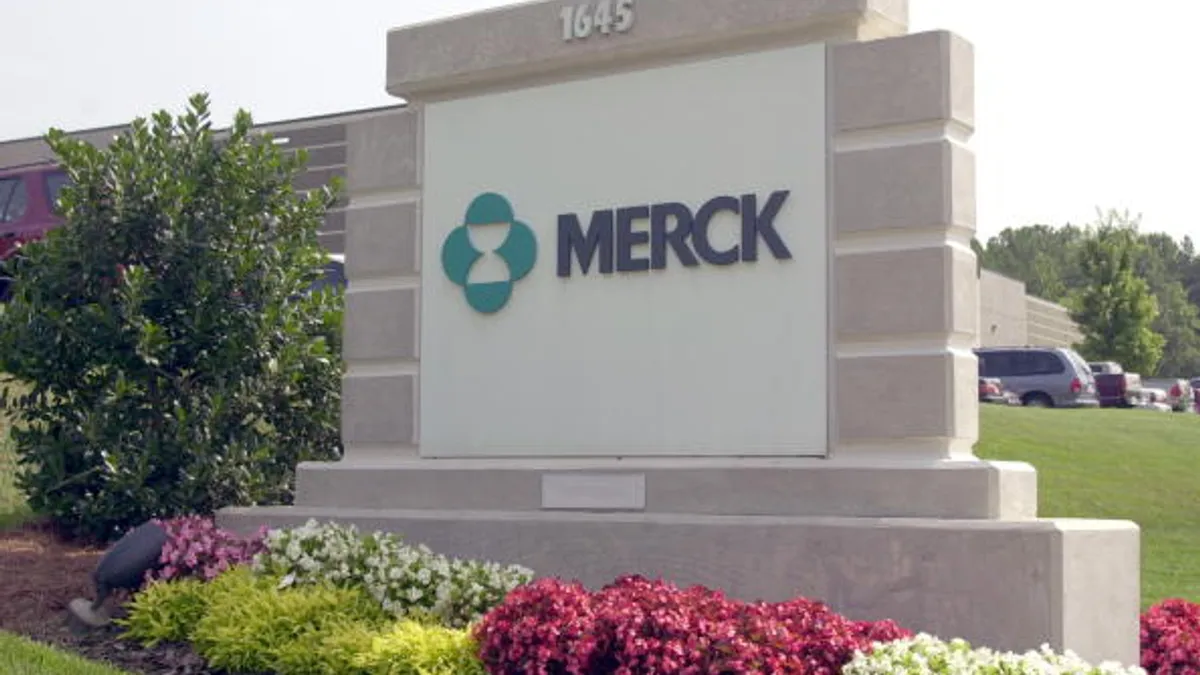Our bodies are home to trillions of microbes, including bacteria, fungi, and viruses. These microbes are essential; they help digest food, produce certain vitamins, and regulate the immune system. Until recently, little was known about these microbes, but advances in DNA sequencing are making it possible to analyze the human microbiome. And it appears that the microbiome has a much broader impact on our health than was previously realized.
 Researchers — through efforts at the National Institutes of Health and many universities participating in the Human Microbiome Project — are beginning to understand that changes of the human microbiome are increasingly recognized as a key factor in autoimmune, metabolic, infectious, and other diseases, including diabetes, chronic obstructive pulmonary disease, irritable bowel disease, and even some cancers.
Researchers — through efforts at the National Institutes of Health and many universities participating in the Human Microbiome Project — are beginning to understand that changes of the human microbiome are increasingly recognized as a key factor in autoimmune, metabolic, infectious, and other diseases, including diabetes, chronic obstructive pulmonary disease, irritable bowel disease, and even some cancers.
The National Institutes of Health launched the Human Microbiome Project in December 2007 with the mission to generate the expertise needed to characterize the human microbiome and analyze its role in health and disease. As a result, there has been an explosion of data and research about the microbiome.
Now, new start-up companies and biopharma companies are trying to harness these insights to deliver new therapies. There have been advances over the last seven years or so that have opened up the eyes of academics, clinicians, investors, big pharma, and government to the field, says Bernat Olle, Ph.D., CEO of Vedanta Biosciences.
“There have been many high-impact publications and major journals such Nature, Science, and Cell showing that the microbiota have very important roles in metabolism, immunity, and infectious disease," he says.
There has been an escalation of information over the past five years, says Michael Step, CEO of Ritter Pharmaceuticals.
 “While it’s still early in this process, new tools have become available over the last few years to sequence the DNA of different bacteria and identify changes at a relatively reasonable cost," he says. “This understanding of the microbiome has grown because of these new tools. Now, we have the ability to analyze much better what’s going on in the microbiome. While the microbiome is not a tool that can be used at this point for gaining approvals of drugs, it’s helping us better understand part of the mechanism of action around certain medications."
“While it’s still early in this process, new tools have become available over the last few years to sequence the DNA of different bacteria and identify changes at a relatively reasonable cost," he says. “This understanding of the microbiome has grown because of these new tools. Now, we have the ability to analyze much better what’s going on in the microbiome. While the microbiome is not a tool that can be used at this point for gaining approvals of drugs, it’s helping us better understand part of the mechanism of action around certain medications."
The microbiome was traditionally viewed as not doing any harm under normal circumstances, but now it’s viewed as an organ of its own with much more interaction with the host than was previously believed, says Jennifer Phelan, scientific product manager at Taconic Biosciences.
“For instance, with the increase of microbial resistance genes toward important classes of antibiotics, the knowledge about the microbiome will help to develop alternative strategies such as probiotics so that we can help to stop antibiotic resistance," she says. “Other researchers have found that elements of the gut flora can protect some people from obesity and food allergies while the presence of other microbes can lead to chronic inflammation and trigger inflammatory diseases, such as Crohn’s disease and non-alcoholic fatty liver disease and even diseases such as rheumatoid arthritis."
Ms. Phelan says the rapidly increasing role of the microbiome in understanding disease development and treatment is going to be very important in the next 10 years.
“We’re not sure where this research is going to go since it is in the beginning phases in applications other than metabolic," she says. “There’s a significant opportunity for biopharma companies to develop therapeutics that change or leverage the microbiome, especially with all of the talk of personalized medicine. Germ-free animal models will play a critical role in these efforts because they will assist pharmaceutical researchers in understanding the role of the microbiome in both disease prevention and treatment."
 Anuk Das, Ph.D., head of scientific innovation, Janssen Human Microbiome Institute, says as researchers begin to understand the microbiome, they are beginning to unlock the true potential to identify ways of restoring homeostatic balance in the ecosystem to maintain health.
Anuk Das, Ph.D., head of scientific innovation, Janssen Human Microbiome Institute, says as researchers begin to understand the microbiome, they are beginning to unlock the true potential to identify ways of restoring homeostatic balance in the ecosystem to maintain health.
“As we think about healthcare and what it will look like in 10 or 20 years, we need to think about how to address opportunities around intervening early in disease, preventing the onset of disease, and maintaining health," Dr. Das says. “We believe science surrounding the microbiome has the potential to unlock these opportunities."
Dr. Das says these opportunities create a new way of thinking about drugs, with the possibility of developing “cocktails of bugs" that, when administered to an individual, restore the ecosystem of the microbiome.
“Potentially, there could be a range of products that could restore the homeostasis of the microbiome," she says.
The human microbiome market is expected to reach $658 million by 2023 up from $294 million in 2019 growing at a CAGR of 22.3% during the forecast period, according to MarketsandMarkets. The human microbiome research spending market, by technology, is divided into cell culture technology, high-throughput technology, omics technology, and computational tools. The cell culture technology is the most widely used technology in microbiome research, and is expected to account for the largest share of human microbiome research spending in 2015.
Microbiome Research
The microbiome is a new area of research, which involves organisms that the pharmaceutical industry hasn’t traditionally worked with.
“One of the challenges for potential entrance into the field is developing all of the internal expertise to know how to work with these microbes, and this is something that we are spending a lot of resources — people’s time and funding — on," Dr. Olle says. “We have to figure out how to grow these organisms, how to isolate them from human fecal samples, how to bank them, what type of characterizations are needed, and then how to grow gram or kilogram amounts of the organisms sufficient to supply patients in clinical trials."
Fortunately, Dr. Olle says the FDA has been proactive in this field as well.
“Regulators, similar to us on the clinical side, realize that the likelihood of safety concerns is very low, so they’ve been very cooperative in helping projects move forward in this field," he says.
Suzanne Dale, Ph.D., director of microbiology and molecular diagnostics at ACM Global, says her company has seen an increase in microbiome work.
 “Over the last 10 years, we have seen numerous trials span many different types of microbiome clinical research," she says. “We’ve had requests from sponsors to simply store samples for future gut microbiome research to more complex testing requests to identify and quantify components of the gut microbiome."
“Over the last 10 years, we have seen numerous trials span many different types of microbiome clinical research," she says. “We’ve had requests from sponsors to simply store samples for future gut microbiome research to more complex testing requests to identify and quantify components of the gut microbiome."
Dr. Dale says many companies at this point know they want to do something with the gut microbiome, but they’re not quite sure what.
Companies that are researching the microbiome are approaching this from different angles. Some are developing pure strains of certain bacteria to see how they affect a disease. Other companies are focusing on the expression that these different bacteria make and how these interact with different diseases. Still others are looking at how to enhance the activity of beneficial bacteria.
Janssen is one company trying to understand the role of the microbiome in disease treatment. The Janssen Human Microbiome Institute, launched in February 2015, aims to understand the role that microbes play in wellness and disease. The institute was created to develop a collaborative ecosystem to accelerate the translation of microbiome research into therapeutic targets and diagnostics and seek to overcome any challenges associated with this approach.
Key to the institute’s strategy is to create an international network involving people at the Johnson & Johnson Innovation centers, at the different Janssen R&D sites both in Europe and throughout the United States, and engage the external community from both academic centers and biotechnology companies.
“Our goal is to accelerate the science in the area of the microbiome," Dr. Das says. “We want to identify the best science happening globally; we’re looking for collaborative partners. We want to be able to accelerate the translation of this research into breakthrough solutions that promote health."
Another company working in this area is Ritter Pharmaceuticals, which is developing therapeutics that modulate the human gut microbiome to treat gastrointestinal diseases. The company’s lead compound, RP-G28 is currently under development for the treatment of lactose intolerance. The product stimulates the growth of lactose-metabolizing bacteria in the colon, which reduces lactose-derived gas production, and thereby mitigates the symptoms of lactose intolerance in the process. The product is about to begin Phase IIb trials for those with moderate-to-severe symptoms.
Andrew Ritter, co-founder and president of Ritter Pharmaceuticals, says the product works through colonic adaptation.
“The compound is a sugar and it is understood to stimulate the growth of lactose-metabolizing bacteria in the colon that allow people to better digest dairy products and reduce the symptoms of lactose intolerance," he says. “A lactose intolerant individual lacks or has low lactase activity; lactase is an enzyme that breaks down the sugar in dairy. When someone doesn’t have the lactase enzyme, the sugar lactose goes through the intestines into the colon where it ferments and causes gas, cramps, and bloating. Our compound stimulates lactose-metabolizing bacteria in the colon to better metabolize the lactose, preventing fermentation and the accompanying symptoms."
Mr. Ritter says the compound acts as a “superfood" that the healthy bacteria in the gut can feed off to stimulate growth.
Mr. Step says this process can be used for a number of gastrointestinal conditions as well as other diseases where colonic bacteria play a significant role.
“We believe by growing the right bacteria and shifting the balance there could be a number of applications," he says. “These can range from C. difficile-associated diarrhea all the way to hepatic encephalopathy, ulcerative colitis, or Crohn’s. We want to do exploratory work in these areas to see if the impact on the bacteria is significant enough to affect the course of the diseases."
Vedanta Biosciences is developing a class of drugs that works by modulating the human microbiome, with an initial emphasis in autoimmune diseases and inflammatory diseases. The company is developing therapies that reintroduce good microbes that are missing.
“Our approach has been to identify the microbes that a patient is missing, isolate them from a different human individual, purify them as clean cultures, grow them synthetically, put them in coated pills, and then provide them for oral delivery in capsules or pills to patients," Dr. Olle says.
 The capsule, which contains live microbes, travels to the intestine where the microbes are released; they then colonize, germinate, and expand. By colonizing the tissue in the body, this mediates a number of immune and metabolic responses.
The capsule, which contains live microbes, travels to the intestine where the microbes are released; they then colonize, germinate, and expand. By colonizing the tissue in the body, this mediates a number of immune and metabolic responses.
Vedanta has a pipeline with multiple candidates in infectious and autoimmune disease and has done research in animal models to show that microbes are efficacious in treating colitis, Crohn’s, food allergies, and infectious disease.
The company has partnered with Janssen Biotech for clinical trials for colitis and Crohn’s disease to begin late 2016 or early 2017. The companies are planning to select patients for the trials based on which microbes they are missing using a combination of existing tools to sequence microbiome compositions and Vedanta’s proprietary tools to determine dosing.
Role of Microbiome in CNS and Cancer
Researchers are also looking at the connection of the microbiome to central nervous system disorders and even cancer. Researchers have shown that some neuro-immune and neuro-psychiatric disorders, such as multiple sclerosis, are correlated with variations of the microbiome. Changes in the microbiome are also thought to have an impact on neuro-psychiatric disorders such as autism, depression, anxiety, and stress.
Moleculera Labs is one company that understands the impact of infection microbes on the immune system and the gut/brain connection.
“There is evidence that shows gut dysbiosis is associated with neuropsychiatric disorders such as autism and other CNS diseases," says Craig Shimasaki, Ph.D., CEO of Moleculera Labs. “In embryology, the development of both the gut and the brain arise from similar cells. We also know that about two-thirds of the immune system resides in the gut. There is the link between exogenous micro-organisms, the brain, and the immune system."
Moleculera Labs is researching the relationship between infectious agents, autoimmunity, and the brain as a factor in diseases such as PANS/PANDAS (sudden onset conditions in children that present like autism and obsessive-compulsive behaviors, but are treatable), Alzheimer’s, Parkinson’s, and other conditions.
“PANDAS and PANS are a constellation of symptoms such as obsessive/compulsive disorder, motor tics, separation anxiety, sometimes anorexia, and suicidal behavior," Dr. Shimasaki says. “These neuropsychiatric symptoms are often categorized into different types of disease states or conditions that may get labeled as autism, ADHD, and other neuropsychiatric disoders. In many cases, we find that it’s an infection-triggered autoimmune condition in which the immune system is attacking the brain and causing these symptoms. We find patients are often misdiagnosed; when they are properly diagnosed, then treated for an underlying infection, their symptoms resolve."
 With cancer, scientists have learned that the microbiome plays an important role, with bacteria actually feeding, protecting, and enabling malignant tumors. Each type of tumor, it turns out, has its own microenvironment of supportive bacteria.
With cancer, scientists have learned that the microbiome plays an important role, with bacteria actually feeding, protecting, and enabling malignant tumors. Each type of tumor, it turns out, has its own microenvironment of supportive bacteria.
Some companies, such as start-up Evelo Biosciences, are looking at the connection of the microbiome to cancer. Using a platform of tumor characterization, computational biology, and directed evolution, Evelo is working to develop a next-generation approach to immuno-oncology that goes beyond checkpoint inhibitors and CAR-T cell therapies.
The company, which was formed at Flagship VentureLabs in 2014, has developed a proprietary discovery, design, and development platform based on an understanding of cancer associated-bacteria and bacterial immune activators to develop microbiome-based therapies to treat cancer.
Evelo Biosciences is pioneering oncobiotic therapeutics, a cancer therapy based on the cancer microbiome. Oncobiotic therapeutics are bacteria-based treatments that leverage the ability of bacteria to disrupt the metabolic cancer environment, influence the immune system, and affect the cancer microenvironment.
“We’re taking out tumor tissue from multiple different types of cancer, at multiple different stages of cancer, and then extracting the bacteria from the tumor microbiome and from these findings we’re building a database of knowledge," says Simba Gill, Ph.D., CEO of Evelo Biosciences. “The microbiome in the tumor micro-environment can be exploited broadly and it’s a totally transformative aspect of biology. We are working on the next wave of immuno-oncology therapeutics.
“We know that specific bacteria and microbes activate the immune system and with that knowledge we can develop microbiome-based products or bacterial mixtures that activate the immune system to attack cancer," he continues.
Dr. Gill says the tumor micro-environment has evolved over time along with human biology, which gives tumors the nutrients it needs and protection from the immune system.
“One of the Holy Grails of our industry has always been to find entities that are able to target tumors in the tumor micro-environment," he says. “This is one of the main projects we’re looking at. Once we’ve found those bacteria, we can work to deliver payload that destroys tumors in a variety of different mechanisms. This is a very powerful next wave in the approach to oncology."
Evelo has several preclinical product candidates in its pipeline and is continuing to work on building its technology platform.
“Our platform will be focused on developing live bacteria as products, and it is a highly complicated process to develop products that are living organisms and mixtures of living organisms," Dr. Gill says. (PV)



















